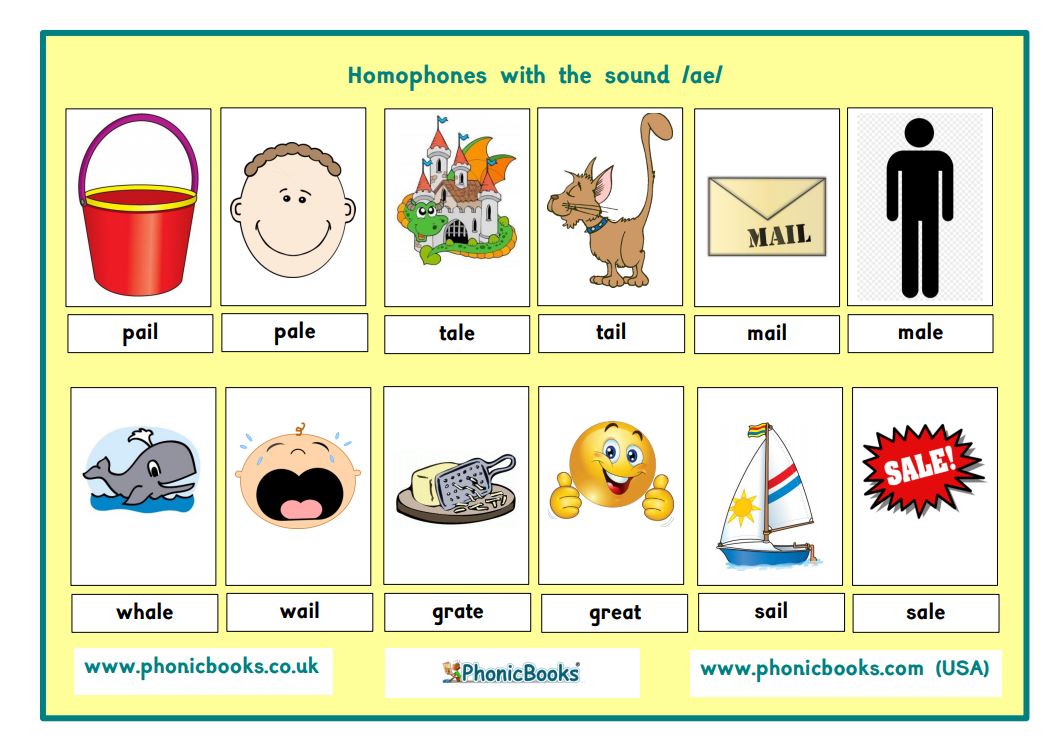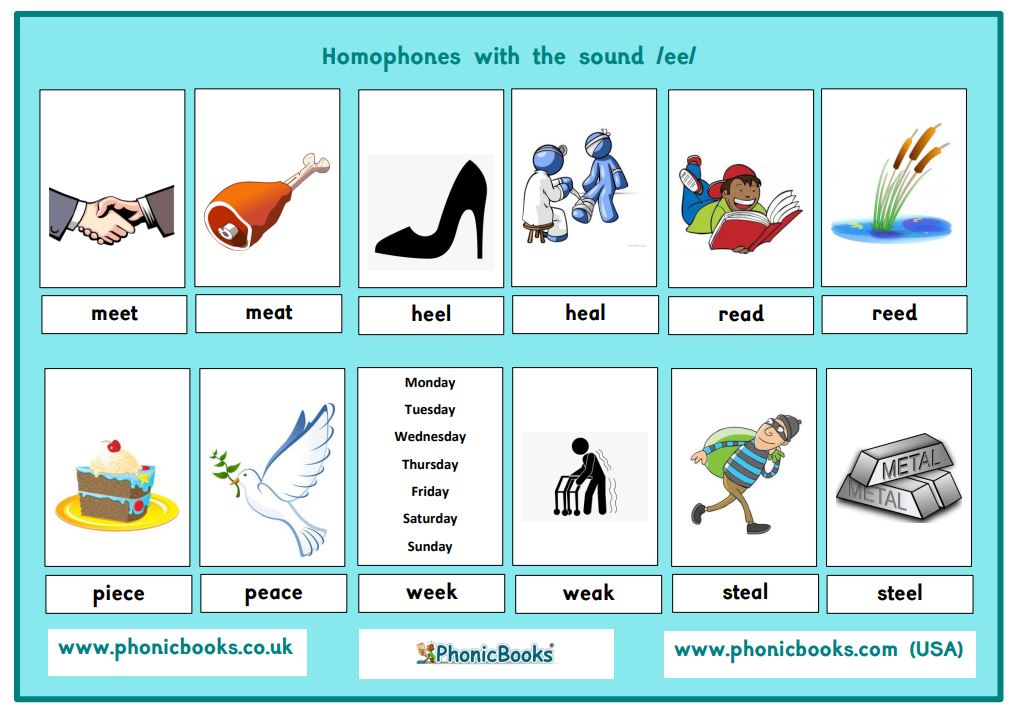What are homophones?
Homophones are words that sound the same but have different meanings. The word ‘homophone’ has a Greek origin: ‘Homo’ meaning ‘same’ and ‘phone’ meaning ‘sound’. So, the word ‘homophone’ means same-sounding words that have different meanings. Some homophones have the same spellings: for example, the words ‘row’ as in ‘to row a boat’ and ‘row’ as in ‘a line of seats in the theatre’. Most homophones sound the same but have different spellings, e.g., ‘sail’ and ‘sale’.
Why does English have so many homophones?
English has many homophones. It is a language that has evolved over time and the pronunciation of many words has changed, but the spellings of those words have not changed. Take the word ‘knight’, for example. The letter ‘k’ used to be pronounced /k/and the ‘gh’ spelling /ch/ (as in ‘loch’). With time, the /k/ sound and the /ch/ sounds disappeared. Now we pronounce both ‘knight’ and ‘night’ as ‘nite’. English spelling was never updated so many words are spelled by an anachronistic spelling system. For this reason English has an ‘opaque’ alphabetic code, with many alternative spellings, e.g., ‘ai’, ‘ay’, ‘a’, ‘a-e’ etc. for the sound /ae/. Other languages updated their spelling systems to reflect the new pronunciations and have much simpler, ‘transparent’ alphabetic codes.
Homophones evolve
Homophones evolve with time and today we can see some new homophones developing. For example, in the UK, many people pronounce the words ‘our’ and ‘are’ in a similar way. Could it be that these words will soon become a homophone? Homophones evolve with regional pronunciations. In UK English there is a distinct difference in the way the words ‘merry’, ‘marry’ and ‘Mary’ are pronounced. While in the USA, in some regions, these are homophones. Another example: in England the words ‘cot’ and ‘caught’ sound different, while in Scotland, Ireland and the USA they sound the same. My favourite is the regional difference in the pronunciation of the words ‘do’, ‘due’ and ‘dew’. In UK English ‘due’ and ‘dew’ have a /ue/ sound, while ‘do’ has an /oo/ sound. In the USA all three words sound the same.
Homophones are a spelling problem
Homophones are a spelling issue. When a child reads a word in a text, the context will indicate which meaning is appropriate. Sometimes the teacher will need to teach new meanings explicitly, e.g., the different meanings of ‘assent/ascent’ or ‘censor/sensor’, but the text will indicate which of the two meanings fits. In the past, before the introduction of dictionaries, it was acceptable to spell a word in many ways. But today we have fixed spellings that fit in every word. This is why homophones are a spelling problem. It is not enough for the child to listen to the sounds in the word and spell those sounds in the word – they need choose the correct spelling for that word. Children need to see the correct spelling within each word multiple times until they know which spelling fits in which word. A useful activity is looking at pairs of homophones and writing sentences for each word. We have created some useful charts for teaching common homophones.

To see our FREE homophone chart follow the links below:
#teachhomophones #phonicsclass #funphonics #phonicsfun #teachspelling #readingintervention #readingtutor



‘Cot’ and ‘caught’ are homophones in Scotland and do not sound different at all spoken in a Scottish accent and I imagine this could be the same in Northern Ireland. Still love your resources, though !
Thanks for your comment. This is really helpful. I will amend the post reminding our readers that pronunciations in the Scotland and Ireland differ from the south of the UK.
cot and caught are homophones
Thanks for your comment. Some homophones depend on one’s pronunciation. In a South East England accent that we speak ‘cot’ and ‘caught’ sound different. The vowel in ‘cot’ is /o/ and in ‘caught’ it is /aw/.